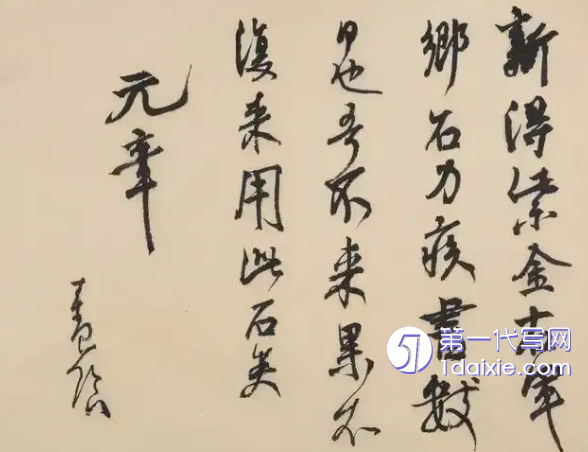本文是一篇英语论文,本文更多地关注于批评理论在文本分析中的应用,而较少考虑作者的背景。正如我们所知,作家的背景在他的创作过程中起到了至关重要的作用,并包含了他的观点。在这两部小说中,格伦维尔和米勒都是白人作家,但他们在各自角色的结构上差异很大。
Chapter One Introduction
1.1 An Introduction to the Authors and Works
1.1.1 Kate Grenville and The Secret River
Kate Grenville was born in 1950,one of three children born to Kenneth GrenvilleGee,a district court judge a pharmacist mother(Henderson 22).When Grenville was achild,she displayed the greatest fantasy in the story,especially when her grandmotherretrospected their ancestors’experience,which was closely interwoven with theformation of Australia.With enthusiasm to literature works,Grenville decided to studyliterature during college,further pursuing her dream.

Grenville has rich experience in her life.After earning a bachelor’s degree fromthe University of Sydney,she began working as a film editor and writer.She became asub-editor at SBS Television and left there to pursuing her writing(Waldren 9).In thelate 1970s,she held various jobs in London and Paris and then went to the United States,where she obtained a master’s degree in creative writing from the University ofColorado.Two years later she published her first book,Bearded Ladies.A collection ofshort stories that explored gender,power,and Australian national identity,all of whichset the tone for Grenville’s later work.Lilian’s Story(1984),her first published novel,and Dreamhouse(1986)both examined women struggling against oppressive situations(Grenville 20).After moving to Colorado,Grenville began teaching,and with TheWriting Book:A Workbook for Fiction Writers(1990),she began publishing booksabout her craft.Grenville achieved major international success with The Idea ofPerfection(1999).The central idea of the novel is thought-provoking:human beings areweak,but together in a relationship,they can provide strength for each other.
1.2 Background of This Research
In recent years,under the call of ethnic diversity,the Australian reconciliationmovement came into being.Based on the historical events,most authors present thehistory in their novels,attempting to arouse people’s reflection on the war.Asrepresenting work of this genre,both Kate Grenville’s The Secret River and AlexMiller’s Journey to the Stone Country present a tragic history of blood and fire betweenthe white and aboriginals.As an essential part of studying colonial history,the twobooks have the remarkable characteristics of the post-colonial novel,which causedheated discussions especially on its political appeals and colonists’identity.However,the colonial behaviors also indicate a strong sense of ecological crisis,which did notreceive more attention from both scholars at home and abroad.
When reading these two novels,like many other readers,at the beginning,Ifocused on racial conflicts and cultural clashes.While after the intensive reading,Inoticed that there exists a common imbalance in the two novels.On one hand,duringcolonization,the white settlers disturbed the local ecological system and violated thenatives’human rights.On the other hand,the colonists also suffered from inner turmoil.Although they possessed the dreamland and gained material success,they never foundthe inner peace,struggling in the internal unrest of Aboriginal dispossession andgenocide.Therefore,we can find that the irreconcilable racial ambivalence are theembodiment of the broken balance in human and nature,society and humansthemselves,and racial reconciliation will be possible if people can hold an ecologicaloverview.
Chapter Two Literature Review
2.1 Studies of The Secret River and Journey to theStone Country abroad
With its multiple themes,The Secret River has been widely read since it waspublished in 2005.Both home and abroad researchers studied it from different aspects.
Western critics first focus on the complex issue of history and fiction.The authorGrenville(2008)claims that this book dedicates to the aboriginal people of Australia inthe past,present,and future,and she wants to exhibit the historical events by creatingthe story.Confronted with Grenville’s stance,some critics suggested she provides a newperspective to recall and understand colonial history.However,other critics contendthat the novel betrays Grenville’s noble claim.One of the Australian academics DoloresHerrero in her journal“Crossing The Secret River:From the Victim to Perpetrator”argues that the novel has made huge efforts to portray the suffering of WilliamThornhill,which arouses readers’sympathy(Dolores 86).They will dismiss theAboriginals’predicament and give more understanding to the whites’aggressivebehaviors(Dolores 87-102).Then,Dolores explored how the novel defamiliarizes someof the most important myths of the Australian nation by applying trauma-relatedtheories and post-colonial critics.Although there are many debates about theauthenticity of the book,several scholars contend the book succeeds in promoting racial reconciliation.In the paper“Going Against the Flow:Kate Grenville’s The Secret Riverand Colonialism’s Structuring Oppositions”,Anouk Lang deems that Grenville succeedin drawing attention to the dichotomies on which the Australian economy of guilt hasbeen constructed,and the material realities of subjugation that have revealed,becomingthe one step to their dismantling(Anouk 14).
2.2 Studies of The Secret River and Journey to theStone Country at Home
Compared with overseas studies,researches about The Secret River in Chinastarted later,until Chinese version was published in 2008.Generally,home studiesabout the book can be divided into three categories.
At the beginning,most critics concentrated on theme studies.In contrast with theoverseas researchers who question the work’s authenticity of history,domestic scholarshad a heated discussion about racial reconciliation.Zheng Yihan and Qi Tao exploredthe author’s view on racial reconciliation.After the intensive reading,they concludedthat the reconciliation process should be advanced through recognition of two sides’similarity and the tolerance of their difference in the premise of the whites’admission(Zheng and Qi 7).Their views are in line with the appeal of people all over the world.When dealing with other nations,it is essential to to seek common ground whileshelving differences.Another scholar,Zhan Chunjuan pays more attention to issuescaused by reconciliation fiction.In the paper“Australian Reconciliation Novels andNew Trends of Literary Criticisms”,She probes into political discourse and powerideology hidden behind the two novels and arrives at a conclusion that The Secret Rivernot only serves as an interpretation to colonial history and racial conflict but reflectsAustralia’s conflicting national psychology as well as the resulting discourse betweenpersonal and public(Zhan 17).
Chapter Three Similar Imbalance in Both Works..................................................20
3.1 The Imbalance of Natural Ecology.....................................20
3.1.1 An Invaded Hawkesbury River:From Peace to Chaos.........................20
3.1.2 The Exploitation of Burranbah:From Green to Barren........................22
Chapter Four Different Strategies to Cope with Imbalance..................................38
4.1 Thronhill’s Pride and Prejudice VS Annabelle’s Understanding and Respect..........38
4.1.1 Rejection to the Natives’Culture...........................38
4.1.2 Reflection to Colonial History................................40
Chapter Five Different Results of Respective Choices.........................53
5.1 Alienation and Estrangement in The Secret River..........................................53
5.1.1 Deteriorating Family Relationship....................................54
5.1.2 Broken Friendship with Blackwood....................................56
Chapter FiveDifferent Results of RespectiveChoices
5.1 Alienation and Estrangement in The Secret River
To be alienated is to experience the world as indifferent to oneself.The alienatedperson struggles to establish relations with oneself,things,other human beings,orsocial institutions(Rahel 3).Thornhill was surrounded by a strong sense of insecuritythroughout his whole life.With a common and humble birth,Thornhill was coldlytreated by his families and people around him.Lacking any start-up capital,nor thesupport from families and friends,there is almost few opportunities for people of hiskind in an industrial London.Therefore,Thornhill has to work for others to fendhimself.During the process,he suffered unfair treatment,experiencing tears andsadness mixed life,and thus was strongly fed up with such life.He did not want to livesuch a bleak life anymore.Therefore,when first saw the Hawsberry,he has a strongdesire to own a piece of land.Then it was a period of fighting time.To take up land,clearing all obstacles,the whites zeroed their gun on the natives(Ye 82).They slaughtered most of the Aboriginals,occupying the land as they wished.However,during the process of land fighting,some changes happened.Not only the relationshipbetween the natives and the whites are irrecoverable,the relationship between Thornhilland his families also deteriorated.which contribute to their estrangement.On the otherhand,though the whites owned the land,they never become the true master of it.Thereis always a sense of alienation between them and the land.

Chapter Six Conclusion
6.1 Major Findings of This Study
This thesis studies the imbalances in The Secret River and Journey to the StoneCountry.With the help of postcolonial ecocriticism-related theories,we can concludethat the imbalance caused by the whites inflicts damage on the Aboriginals’natural,social and spiritual ecology.At the same time,the whites themselves are also sufferingfrom it.Although both the whites and the Aboriginals were confronted with theimbalance,the different strategies to deal with the collapsed balance can give rise to thedifferent outcomes,with one regained balance and inner peace,the other trapped ininward disturbance for the rest life.
In the two novels,the Aborigines’peaceful and harmonious life was disturbed bythe white colonists.On landing the Australian land,they inordinately plundered thenatural resources,shaking the balance between humans and land.“In the process ofcolonial violence,the environment is a non-human witness”(Elizabeth and Handley 6).Besides,they crashed the natives’social order.Due to the while colonists’desires forwealth and rights,the alienated human relationship replaced precious mateship.Whatpeople were concerned about was only themselves.Most significantly,the whitecolonists trampled the aborigines’culture.By degrading the aboriginals’lifestyles,thewhites deprived the natives of cultural confidence,making them suffer an identitycrisis.
reference(omitted)
